Marina Satti ready to ‘rock the stage’ at Eurovision

Πηγή Φωτογραφίας: Διαδίκτυο//Kathimerini caught up with the singer of Greece’s controversial entry, ‘Zari,’ shortly before the European song contest in Malmo, Sweden
It was just a few days after “Zari” was unveiled as the song that would represent Greece at the Eurovision song contest in Malmo, Sweden, on April 11, and we were at a house party in Thessaloniki, northern Greece. Most of the guests were hanging out in the courtyard chatting when the birthday boy announced that “Zari” (Dice) was coming up next on the playlist. “If you dig it, come inside,” he shouted. Within seconds, his 15-square meter living room turned into a jam-packed dance floor, with bodies “falling and rolling around like dice,” to quote a lyric from the catchy trap-pop tune. I couldn’t help thinking whether Marina Satti would ever know what she accomplished.
The same thought lingered in the days that followed as I scrolled through a river of social media posts ranging from deification to vilification of the song’s controversial video, which pokes fun at stereotypes of Greek holidays. Even the mainstream media was packed with commentators trying to analyze the piece, taking us back to Greece’s Eurovision heyday (2004-2011). Indeed, for a few days at least, “Zari” caused a national rift over Greece’s international image.
What with one thing and another, the song is now among the top 10 favorites to win on Saturday and is already a staple at every Greek nightclub and party. But the question persists: Did Marina Satti ever think that her song would cause such a stir? “No, definitely not,” says the 37-year-old artist shortly before heading off to Malme.
What kind of place were you at when state broadcaster ERT approached you, for the third time, in September 2023, asking that you represent Greece at Eurovision?
I was in a “gung-ho” phase. Their previous approaches had filled me with apprehension, I was in a different creative phase. This time around, I felt ready but I didn’t have a song. I asked myself what kind of mess I was getting myself into.
Why a mess?
Because I’d never done something like this before: commissioned inspiration. Usually, when I like something in the songs I write – the music, because I don’t write lyrics – I am the one to communicate it, not the other way around and especially not with a deadline.
Was the deadline strict?
Well, we were receiving songs at ERT until December. We created a file where we stored the things we liked. If there was some element in a song that clicked with me, I’d contact the writer.
What made it onto the short list?
We had boiled it down to 10 ideas. Some were dance songs, in the same style as “Zari.” There was a soft ballad similar to “Pali” [one of the songs on her latest album, “Yenna,” which has been very well received], while we also received some harder sounds, but with folk and urban elements. Everyone who heard the ballad thought it was “it.”
So we nearly went to Eurovision with a ballad?
The idea troubled me and I wondered: “We’re going to a night with so many rhythmical pieces, with a lot of noise; should I go in with something soft?” But then I asked myself: “You only have three minutes. What kind of impact do you want to make?” It’s not like a concert where you have the time to unfold your story.
So how did you end up with “Zari”?
The music producer OGE sent me a demo of “Zari,” written in English with two rs. It was a melody on which I could add whatever lyrics I wanted.
And how did he come up with the title?
OGE told me that it came up as he was saving the file. He didn’t know if this was the melody for Eurovision; he thought of it as a dice roll. At the same time, Kiki Tsolka [head of public relations at Minos-EMI] noticed that every time the melody came on, my body would react. And that’s when I said, “Let’s do something like the demo, but it’s got to have a zurna.” We bandied all sorts of ideas around until someone suggested that we use the actual melody from the demo – with a zurna.
I discern a certain fondness for the zurna.
One of the comments we got on the initial recording was that we needed to dial down the zurna. But that’s the zurna: It can’t be dialed down. If I’d wanted something softer, we’d have used a flute. The zurna, together with the daouli at a low frequency, created a certain intensity, an emotion close to ecstasy. But we also wanted the end result to be very melodic. We made 60 versions of the song, in different tonalities, but we felt that the piece lacked that element which grabs your attention, that “let’s go” moment.
So how many vernaculars does “Zari” span?
There are rhythms and grooves that you find all over the world. I use a rhythm that’s very familiar in Greece, the syrtoroumba, which is similar to a balos, and which people abroad know and dance to, even if they call it something else. I also add an urban sound similar to reggaeton, which is the predominant sound right now, worldwide.
Is that what ERT asked you to deliver?
What I was asked to do was to present an audiovisual show that people would be seeing on their televisions, not live – which is why the act is so camera-based, a single shot. We have just three minutes to create a world. We have humor, femininity, plenty of pluck and attitude.
A lot of this year’s entries are following the Finnish recipe of “Cha Cha Cha,” with crowd-pleasing pieces and choreographies that will go viral on TikTok. I feel that the entry that is closest to ours in spirit is Ladaniva’s “Jako,” for Armenia.
Sure, though Armenia’s has more folk elements than ours. I would have liked it to be more modern. But I do like it a lot. It’s charming and fun, and packed with positive energy.
What are some of the other entries that stand out?
I would have loved to have Ukraine’s refrain [in “Mama Teresa” by Jerry Heil and Alyona Alyona]. I also like Switzerland and Spain. The latter evokes something melancholy, a 1980s nostalgia mixed with the new vibes disco of Dua Lipa and The Weeknd. Also, of course, Cyprus, with Silia Kapsis. She’s just 17 years old and is an amazing singer and dancer. I don’t know how she has managed to conquer both at such a young age.
Are you like all the rest of us Greek Eurovision fans, fantasizing about a victory and an “Athens 2025”?
I don’t know what’s going to happen. Honestly. I obviously don’t want it to end badly. I want us to do well, especially seeing how much joy it’s brought to all the people who have expressed such positive feelings about the song. I’m going to try to give it everything I’ve got. I can’t control the result, but I can control that we rock the stage and that what you see will be top.
Mixed reception
Judging by the commentary on social media, other Eurovision fans don’t share Greeks’ skepticism. From start to finish, “Zari” has an impact, makes them move to the rhythm. They may not get the lyrics, but they certainly get the vibe. And their positive reception means that the recipe is working.
At the same time, meanwhile, Greeks are still bickering, even at Kathimerini’s offices, which is why we asked a few colleagues whether they had something to say to Satti.
When “Zari” first came out, Greek were split into three camps: those who went crazy for it, those who didn’t like it at first but warmed to it later, and those who hated it.
I was in a taxi just a few days after the release and “Zari” was playing on the radio. I asked the driver whether he liked the song that would represent Greece at Eurovision. “Not at all,” he answered. But you know what? It’s good that some people like it and others don’t. I prefer that to the song not having any impact at all. So, I’m really happy that the song is being communicated, and even happier that people of my age are saying that it expresses them.
Does “Zari,” as an overall project, represent your tastes and references, or is it a deeper comment on Greece, as some say? If it is a comment, is it trying to be humorous or literal?
I’m not sure that the video would have been what it is if the song wasn’t intended for Eurovision. It’s designed according to the assignment I was given, or at least to how I understood that assignment. But everything we do is the result of who we are. Everything someone does in a statement. I’ve been performing at festivals abroad since 2018 so I know what people like and what works, and I’ve noticed that foreigners have a very specific idea of what Greece is. I knew how to approach this contrast and these stereotypes with humor. There was also my reaction to hearing me presented as “Greece’s representative abroad” when my name was announced for the song contect. I laughed and thought: “Great! I’ll show them Greece, then.” That’s how I got the idea of the tour guide, who doesn’t say what Greece is, but shows what I see it as being.
Ultimately, though, how do you see Greece today?
It’s the East and West, the past and present. It comprises all sorts of people. It is all of these things and we are all part of it. My aim is to show that we’re relevant, that we’re not a country that’s on the sidelines. I want to be able to present something and hear a foreigner saying: “Wow! That came from Greece?”
Let’s wrap up with a dilemma: What would you prefer, that you finish in the top five or that we’re singing “Zari” for another 20 years?
Why does it have to be one or the other? Whatever gave you the impression that less is more for me?
Source: kathimerini.gr//Pandelis Tsompanis
Διαβάστε όλες τις τελευταίες Ειδήσεις από την Ελλάδα και τον Κόσμο









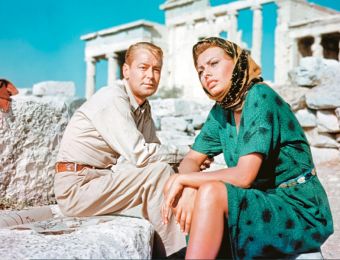



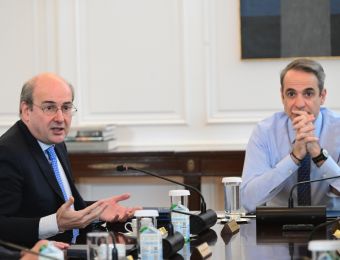
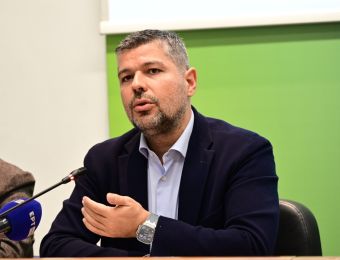

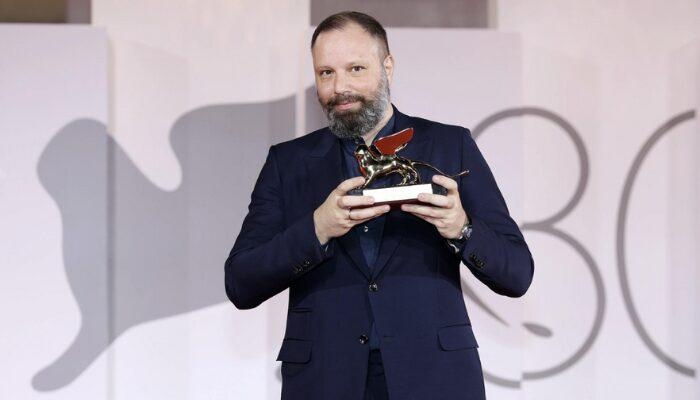
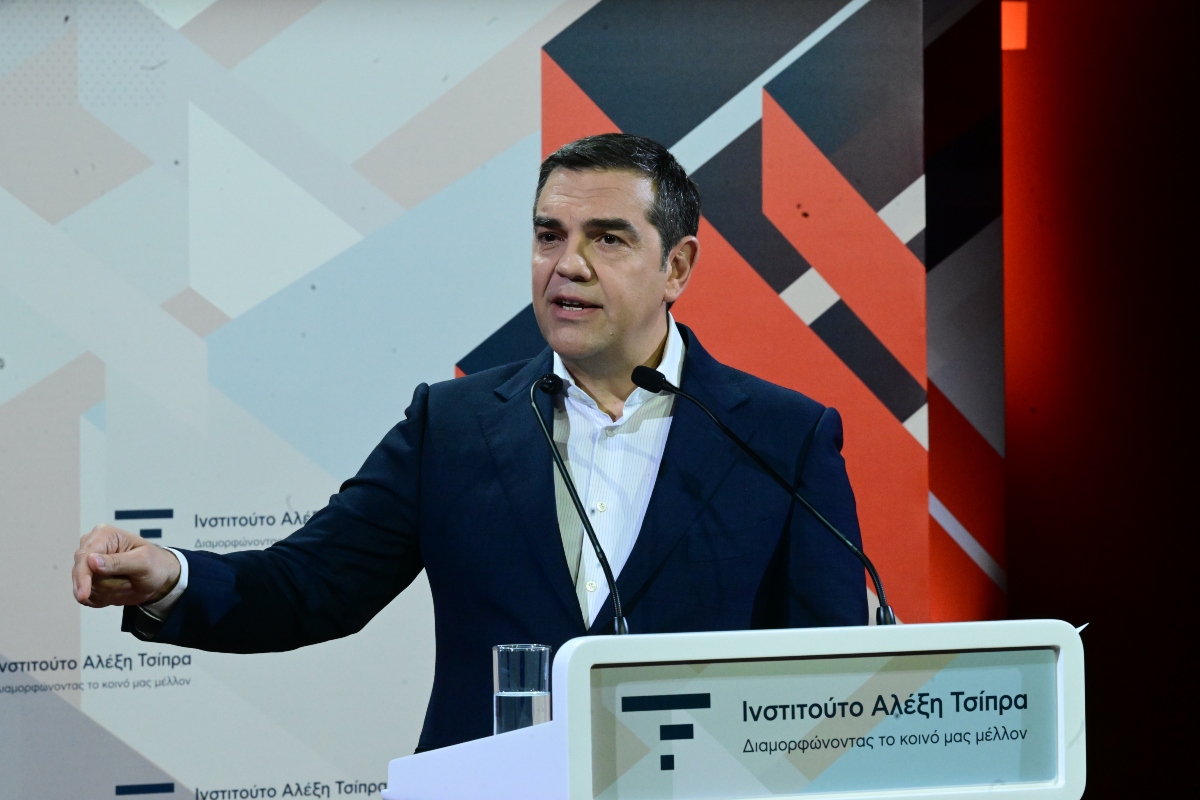



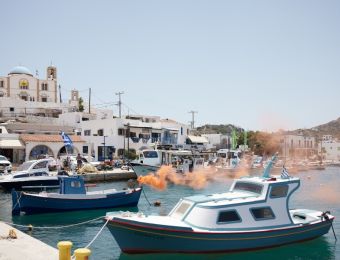







Το σχόλιο σας